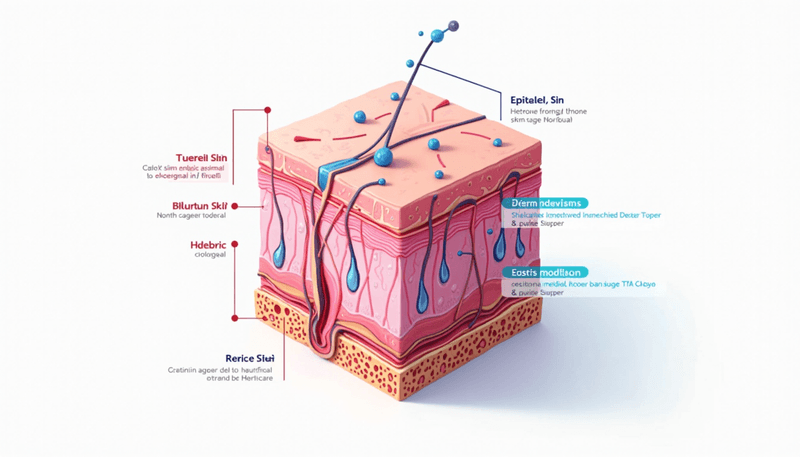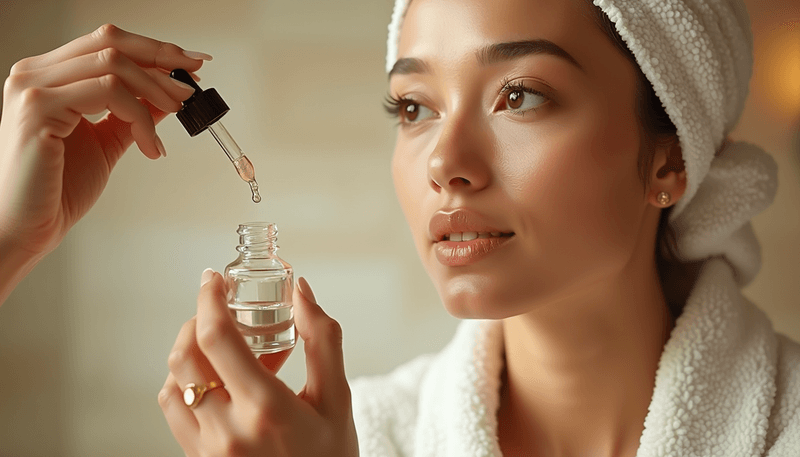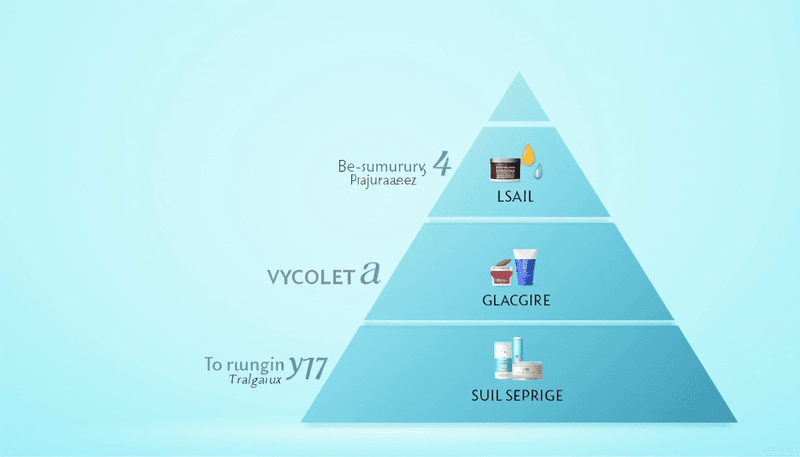Skin Changes During Menopause: What Works

Did you know that 75% of women experience noticeable skin changes during menopause, yet most aren't aware that these changes are directly linked to their hormonal transition? As a medical professional specializing in women's health, I've seen countless patients surprised by sudden changes in their skin during menopause. This comprehensive research paper from the Brazilian Society of Dermatology sheds light on why these changes occur and, more importantly, what we can do about them.
Understanding the Hormonal Impact on Your Skin
Think of your skin as a responsive fabric that's been supported by estrogen throughout your life. When estrogen levels drop during menopause, this support system changes dramatically. Research shows that women lose about 30% of their collagen in the first five years of menopause - that's more than the gradual loss that comes with normal aging.
What changes have you noticed in your skin since entering perimenopause?
The science behind this is fascinating: estrogen doesn't just affect the surface of your skin - it influences every layer, from the protective barrier on top to the deep, supportive structures below. When estrogen decreases, your skin produces less hyaluronic acid and other moisturizing compounds, leading to dryness and loss of elasticity.
The Power of Protective Antioxidants
One of the most significant findings from the research is how environmental factors interact with menopausal skin changes. Think of your skin during menopause as a house with weakening defenses - it needs extra protection against external threats like UV radiation and pollution.
The solution? A strategic combination of antioxidants. Vitamin C (5-15% concentration) and Vitamin E work together like a tag team: Vitamin C boosts collagen production, while Vitamin E protects against environmental damage. In my practice, I've seen remarkable improvements in patients who consistently use these antioxidants, particularly in skin firmness and brightness.
Practical Tip: Apply your antioxidant serum in the morning, under your sunscreen, for maximum protection. Look for products containing both Vitamins C and E for synergistic benefits.
The Three-Layer Approach to Skin Health
The research introduces an innovative pyramid approach to skincare during menopause, which I've seen transform many women's skin health routines. Think of it as building a house: you need a strong foundation, supportive walls, and a protective roof.
Base Layer (Daily Essentials):
- Broad-spectrum sunscreen (UVA/UVB protection)
- Antioxidant serums
- Gentle cleanser
Middle Layer (Renewal):
- Retinoids for cell turnover
- Hydrating ingredients like hyaluronic acid
- Alpha hydroxy acids for gentle exfoliation
Top Layer (Advanced Care):
- Peptides for collagen stimulation
- Growth factors
- Specialized treatments
How many of these skincare elements are currently in your routine?
Lifestyle Factors That Make a Difference
The research emphasizes that skin health during menopause isn't just about what you put on your skin - it's about your overall lifestyle. Here's what works:
- Regular physical activity: 150 minutes of moderate exercise weekly improves skin circulation and reduces hot flashes
- Balanced nutrition: Focus on omega-3 fatty acids, proteins, and antioxidant-rich foods
- Adequate sleep: 6-8 hours of quality sleep supports skin repair and regeneration
- Stress management: Regular relaxation practices help control cortisol levels that can affect skin health
I had a patient, Sarah, who implemented these changes gradually over three months. She started with just 20 minutes of daily walking and adding salmon to her diet twice a week. By month three, she reported not only better skin texture but improved energy levels and fewer hot flashes.
Conclusion: Your Action Plan
The research clearly shows that menopausal skin changes are complex but manageable. Start with these steps:
- Begin using a vitamin C serum in the morning
- Apply broad-spectrum sunscreen daily
- Add a gentle retinol product at night
- Increase your water intake
- Get moving with regular exercise
Which of these changes will you implement first in your skincare routine?
Your skin's journey through menopause doesn't have to be a struggle. By understanding the science and taking proactive steps, you can maintain healthy, resilient skin during this transition. Start with one change today - your future self will thank you.

Dr. Marcus Anthony Bennett
Dr. Marcus Bennett is a Seattle-based freelance medical writer and consultant specializing in mid-aged women's health. With a background in internal medicine and over a decade of experience in preventive care, he is dedicated to making complex health topics accessible. Dr. Bennett completed his MD at Johns Hopkins School of Medicine and residency at the University of Washington. His empathetic and evidence-based approach combines traditional medical expertise with a focus on health disparities, often incorporating practical lifestyle advice. Known for his clear, engaging communication, Dr. Bennett provides actionable insights to empower his audience.







